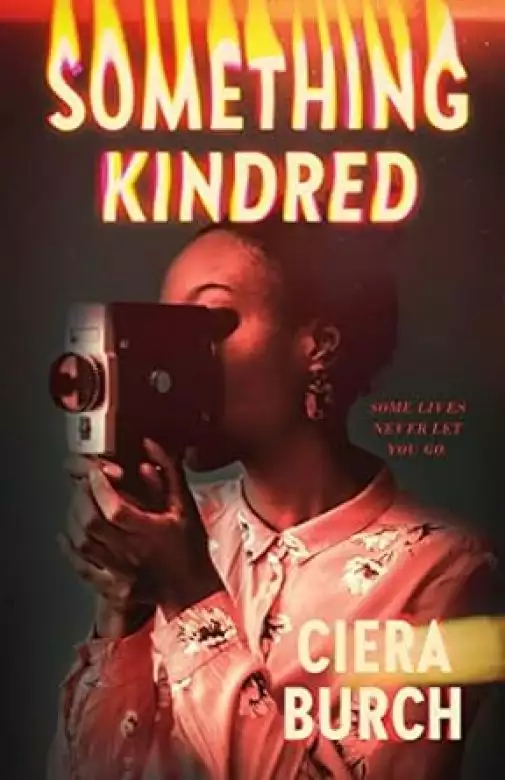ONE
There are only two things I know about my grandmother.
One: Her name is Carol Annette.
Two: She left Mom and Uncle Miles for good on a Tuesday morning, after promising to take them to the ice cream shop when they got out of school.
That’s why it makes no sense that Mom has dragged us from New Jersey, all the way to Maryland, to take care of her for the entire summer. Except for the fact that my grandmother has cancer. I think the idea of losing her permanently freaks Mom out more than she’d ever admit.
Death does that.
So, here we are. Standing outside Douglas Memorial Hospital with mosquitoes buzzing in our ears, skin growing sticky with sweat under the afternoon sun, Mom trying to work up the nerve to go inside.
“Mom—” I start.
The automatic doors open before I can say anything else, and it’s a relief when Uncle Miles steps through them. It’s weird seeing him here. We usually meet him at rest stops the size of small towns, cramming months’ worth of conversation into half an hour as he gulps down coffee.
“You good, kid?” he asks, pulling me into a hug first.
“Could be better,” I mumble against his chest. He smells like dryer sheets and the cab of his truck.
He snorts and lets go, turning to Mom. She’s quick to wrap him in a hug. He towers over both of us but leans down and patiently waits as she holds his face in her hands. They mostly look alike except Uncle Miles has small patches of pale skin that creep up his neck and jaw, dotting the space above his right eyebrow and curling around the shell of his left ear. But they’ve got the same eyes, wide and long-lashed.
When he presses his left hand into Mom’s, it’s white all the way to the wrist.
“You ready?” he asks.
Anxiety settles over me like a familiar second skin. The trip down was normal, the same as any other long drive. It was easy to forget the dying stranger waiting for us in a hospital bed. But now I’m nervous. I’ve never had grandparents before, and I’ve never known a person who was dying. Now they’re one and the same.
I wait for Mom to answer for the both of us and look at her when she doesn’t. She’s let go of Uncle Miles, and her arms are curled tightly around herself now, nails digging into the skin. Her jaw’s clenched. Her eyes are bright with something I don’t recognize.
Still, she walks through the automatic doors when they open for her, leaving us to follow.
Mom’s quiet when the old woman working the front desk addresses her by name and gives us our visitor passes. She’s quiet all the way up to the third floor, the top floor in this tiny hospital. It smells like sour milk and Lysol. She’s quiet until just outside room 355, when she turns to me and takes my hand.
She grips it like I’m five years old and we’re crossing a busy street before she opens the door.
Loud, echoing laughter greets us.
The first glimpse I get of my grandmother is of her open-mouthed smile. She’s looking away from us, toward two full-figured women in the corner wearing too much costume jewelry. When they catch sight of us, their eyes flit between Mom, Uncle Miles, and me.
“Well, I’ll be damned,” one says. A giant rhinestone butterfly hangs from her neck. “Welcome home, Lacey.”
Mom doesn’t respond, but her grip on my hand tightens painfully when my grandmother looks in our direction. The room is silent. Even the click of the door, shutting as the women slip out, is muffled.
I glance at Mom. I watch the muscles in her throat work as she swallows, and I imagine a lifetime of one-sided conversations disappearing with the motion.
In the stretching silence, I turn to look at my grandmother. I notice her shock of silvery hair first, stiff enough to make itself known as a wig. She looks so much like Uncle Miles that there’s a strange recognition when I glance at her, a stutter step of surprise. She has the same tilt to her head, the same small, pointed ears and high cheekbones. And her eyes. Brown, the skin beneath them vaguely bruised-looking. They look like Uncle Miles’s. Like Mom’s. Like my own. A genetic family heirloom.
One of the only things she left behind with her kids when she left them.
“Lacey.” She speaks first, her voice warm. The vowels in Mom’s name stretch with familiarity and the hint of an accent.
“Mama.” I blink at the title and how easily it sits on her tongue. Mom takes half a step forward and stops. She looks more unsure than I’ve ever seen her. “You look…” She clears her throat. “It’s been a while.”
“It’s been a lifetime,” my grandmother says. Her eyes flicker from Mom to Uncle Miles. She looks slightly surprised, like she can’t believe how old they’ve gotten. Her hands twist themselves into the bedsheets. Maybe it’s from her that Mom and I get our bad nerves, the restlessness of our hands.
The recognition of myself in this woman pushes back my anxiety and makes room for anger. Why should she get to show up in any part of me, or Mom, when she decided to make herself a stranger?
“Glad to see you’ve filled out. You wasn’t nothing but sharp edges and scraped knees as a little girl.” She laughs, and it sounds like a scoff. “Used to drive me crazy.”
Silence. And then Mom’s voice: “I’m not a little girl anymore.” ...
We hope you are enjoying the book so far. To continue reading...
Copyright © 2026 All Rights Reserved
